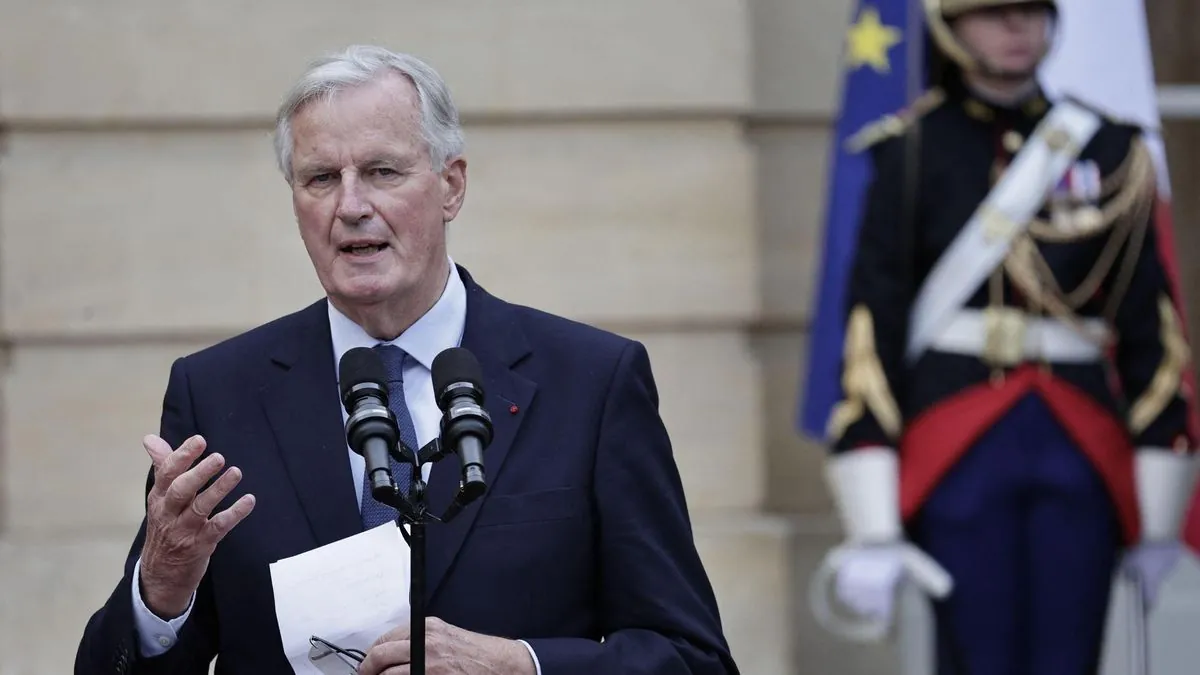Michel Barnier, the French Prime Minister, is poised to present a significant tax reform plan in a highly anticipated address to the National Assembly. The proposal aims to generate between €15 billion and €18 billion in additional state revenue, as reported by Le Parisien newspaper.
This financial strategy comes at a crucial time for France, the second-largest economy in the Eurozone, as it faces mounting pressure to address its budget deficit. The government is tasked with finalizing the 2025 state budget by mid-October 2024, a process that requires substantial spending cuts and tax increases.
According to Le Parisien, Barnier's plan includes several key measures:
- An €8 billion increase in corporate taxes
- A €3 billion levy on energy companies and share buybacks
- A significant hike in income taxes for high earners, expected to yield €3 billion
- A €3 billion increase in electricity taxes
These proposed tax measures reflect France's ongoing struggle with budget deficits, a challenge it has faced for several decades. The country's public debt surpassed 100% of GDP in 2020, highlighting the urgency of fiscal reforms.
Laurent Saint-Martin, the Budget Minister, recently revealed that the financial situation is more dire than initially estimated. The budget deficit could potentially exceed 6% of economic output, significantly higher than the 5.1% projected by the previous administration in spring 2024.
In light of these challenges, Barnier is reportedly considering postponing France's target for achieving the Eurozone's common 3% deficit goal from 2027 to 2029. This 3% target is a key component of the EU's Stability and Growth Pact, which aims to ensure fiscal discipline among member states.
"The proposed tax measures, while ambitious, reflect the gravity of France's fiscal situation. Balancing the need for increased revenue with maintaining economic competitiveness will be a delicate task for Barnier's government."
France's tax system, already known for its complexity and high tax-to-GDP ratio among OECD countries, may face further adjustments. The country's progressive income tax system, with rates ranging from 0% to 45%, and its wealth tax on high-net-worth individuals, are distinctive features of its fiscal landscape.
As Barnier prepares to deliver his general policy speech at 13:00 GMT on October 1, 2024, all eyes will be on the National Assembly. The Prime Minister's proposals will likely spark intense debate, given France's strong social welfare system and the need to balance public spending with economic growth.
The outcome of this fiscal strategy will have significant implications not only for France but potentially for the entire Eurozone. As a founding member of both the European Union and the Eurozone, France's economic policies often have far-reaching effects on European fiscal and monetary policy.
